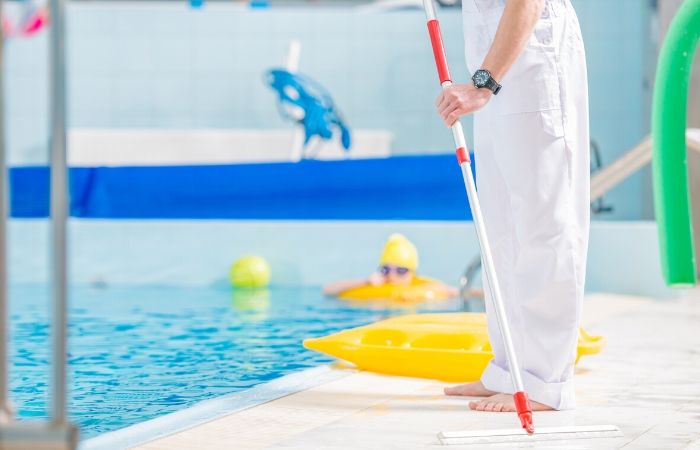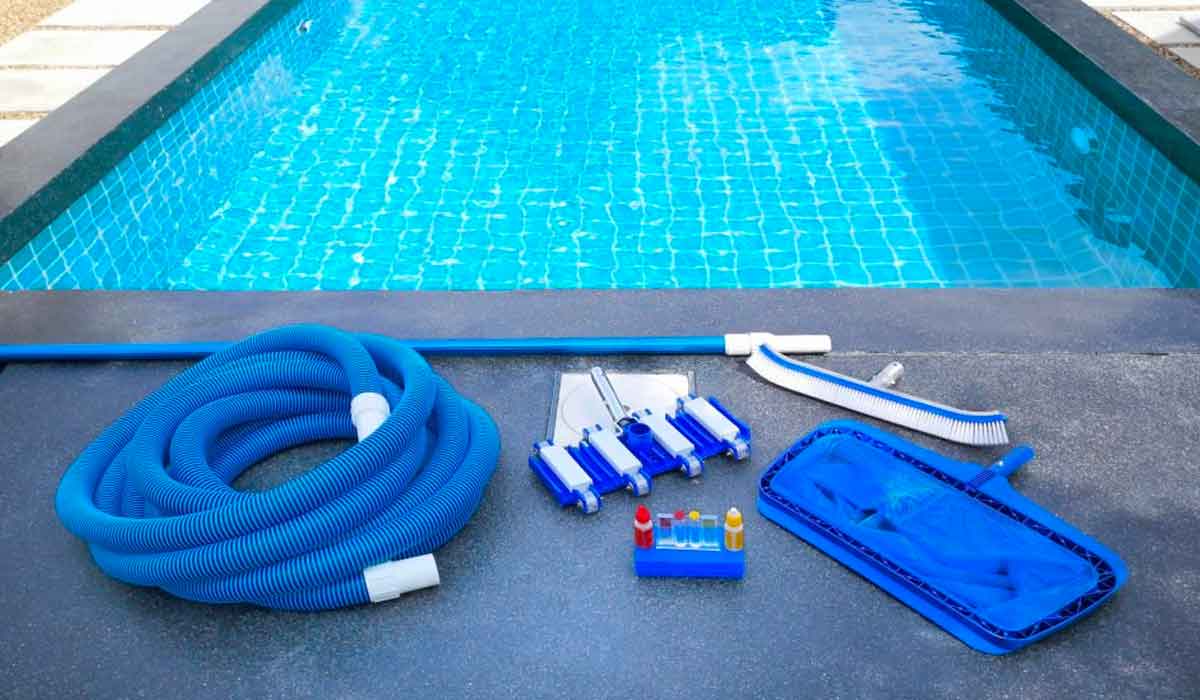Vital Swimming Pool Upkeep Tips to Keep Your Water Sparkling Clean
Keeping a beautiful swimming pool calls for a systematic approach to water care and tidiness, which eventually adds to both the visual charm and durability of the swimming pool itself. Secret techniques consist of normal screening of water chemistry, efficient purification, and debris monitoring. Following these fundamental techniques not only boosts the quality of your swimming pool water yet additionally safeguards versus possible issues that could escalate right into pricey repair services. As we explore these important maintenance pointers, a deeper understanding of their value will certainly expose how straightforward activities can cause exceptional cause pool maintenance.
Examination Water Chemistry Regularly
To guarantee a risk-free and satisfying swimming experience, frequently examining water chemistry is important. Proper water equilibrium not only boosts swimmer comfort yet likewise safeguards pool devices and surface areas. The main chemical parameters to keep an eye on consist of pH, chlorine degrees, alkalinity, and calcium solidity.
pH degrees need to be kept between 7.2 and 7.8, as this variety decreases skin and eye irritation while maximizing chlorine performance. Chlorine levels should ideally be between 1-3 components per million (ppm) to supply ample cleanliness without causing undesirable smells or inflammation. Total alkalinity, which serves as a buffer for pH, must be kept between 80-120 ppm to stabilize water chemistry and prevent fluctuations.

Keep the Pool Filter Clean
Maintaining appropriate water chemistry is only part of effective pool treatment; maintaining the pool filter clean is just as crucial for optimal performance. The pool filter plays a crucial role in removing debris, dust, and pollutants from the water, making sure a satisfying and risk-free swimming atmosphere. With time, filters can end up being blocked with fragments, which can significantly lower their performance.

Furthermore, keep an eye on the stress scale on your filter system. A pressure increase of 8-10 psi over the normal operating variety commonly suggests that it's time for cleansing. Disregarding to preserve a clean filter can cause inadequate water circulation, unbalanced chemistry, and raised stress on the pool pump, inevitably causing higher energy prices and possible devices failure.
Skim and Brush Often

Cleaning the swimming pool wall surfaces and flooring is just as vital. It assists remove algae, dust, and other impurities that may stick to surfaces. This task needs to be done a minimum of when a week, concentrating on locations with inadequate blood circulation, such as edges and actions - Pool Inspection. Use a swimming pool brush with a suitable bristle kind for your pool surface area-- nylon brushes for plastic or fiberglass swimming pools, and stainless steel for plaster or ceramic tile surfaces.
Maintain Proper Water Degrees
Keeping the swimming pool surface tidy via constant skimming and cleaning dramatically contributes to overall water quality, but preserving proper water levels is equally important for optimum swimming pool wellness. The water degree in your pool ought to preferably be at the midpoint of the skimmer opening. This ensures that your skimmer can effectively eliminate particles and floating impurities, protecting against accumulation that can endanger water quality and high quality.
Low water degrees can lead to pump damages, as the pump may run completely dry, running the risk of costly repair services. Conversely, excessively high water levels can cause water to overflow, weakening chemical balances and developing an unpleasant mess. Routinely check your swimming pool's water degree, specifically after heavy rainfall or substantial evaporation as a result of heat.
Additionally, think about variables such as swimming pool use, environmental problems, and the type of water functions in your pool, as these can affect water levels. Mounting a swimming pool cover can aid reduce dissipation and preserve a stable level if you discover yourself consistently battling rising and falling water degrees. Eventually, routine monitoring and adjustment of water levels will certainly assist make sure a healthy swimming environment and prolong the life of your pool equipment.
Set Up Seasonal Upkeep
Recognizing the significance of seasonal upkeep is vital for ensuring your pool continues to be in optimum problem year-round. Each period brings special difficulties and problems that can impact the water high quality and architectural integrity of your swimming pool. By organizing maintenance jobs on a regular basis, you can stop minor problems from escalating right into pricey repair services.
In the spring, concentrate on opening up the pool, inspecting the filtering system, and stabilizing the chemical degrees. This establishes a solid foundation for the swimming period - Pool Inspection. As summer season strategies, regular upkeep such as skimming particles, cleaning surfaces, and tracking water degrees comes to be necessary to preserve cleanliness and safety
As fall gets here, plan for cooler temperature levels by getting rid of leaves and particles, and take into consideration winterizing your pool if it will not be utilized throughout the cooler months. This includes reducing water degrees and including winterizing chemicals to shield against freezing.
During the winter, regular examine the swimming pool cover and tools are essential to ensure whatever continues to be undamaged. By adhering to a seasonal maintenance schedule, you can extend the life of your pool and maintain it welcoming and secure for use year-round.
Final Thought
Normal swimming pool maintenance is crucial for making sure water clearness and safety. By consistently checking water chemistry, keeping the swimming pool filter in ideal condition, and performing routine skimming and cleaning, pool proprietors can properly prevent algae development and other concerns. Maintaining appropriate water levels improves circulation, while sticking to a seasonal upkeep routine assists resolve potential troubles proactively. Executing these crucial methods will add dramatically to a tidy and inviting swimming setting.
By preserving appropriate water chemistry, swimming pool owners can ensure a secure setting, extend equipment life, and enhance general satisfaction of their swimming pool.
Preserving appropriate water chemistry is only component of effective pool care; maintaining the Pool Maintenance swimming pool filter tidy is just as important for optimum efficiency. Make use of a pool brush with an ideal bristle type for your swimming pool surface area-- nylon brushes for vinyl or fiberglass swimming pools, and stainless steel for plaster or tile surfaces.
Maintaining the swimming pool surface tidy through constant skimming and brushing substantially adds to total water high quality, but keeping proper water levels is equally vital for ideal swimming pool wellness.In addition, take into consideration variables such as pool use, environmental problems, and the kind of water features in your swimming pool, as these can affect water degrees.